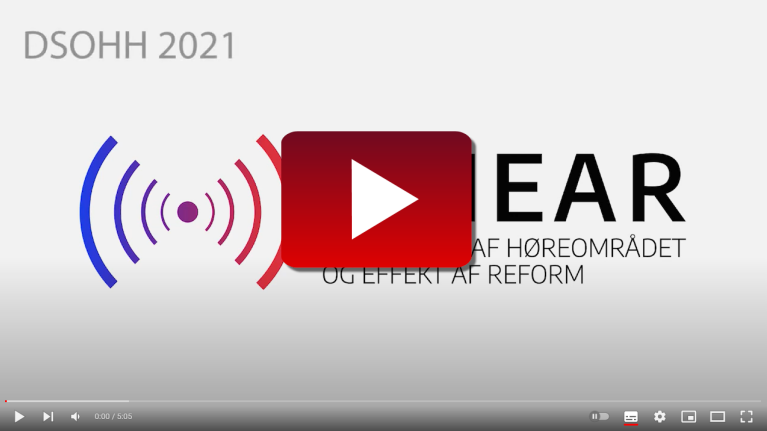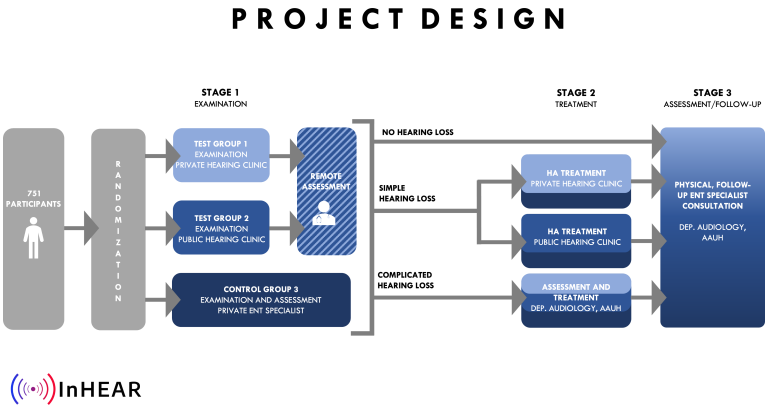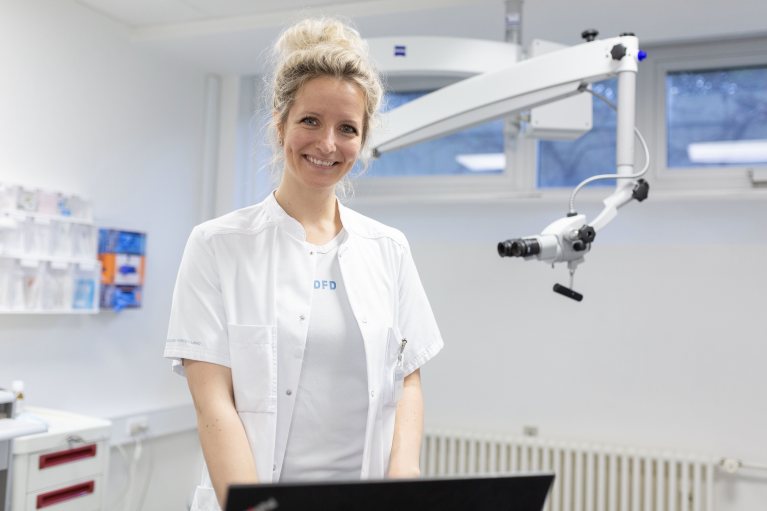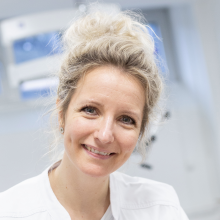The InHEAR-project
The InHEAR-project is a randomized clinical trial comprising 751 hearing-impaired adults. It is sponsored by The Danish Health and Medicines Authority and The North Denmark Region and is a successful example of a potent cross-sectional cooperation between the private and the public sector in hearing healthcare. Twelve private and five public hearing rehabilitation clinics, three ENT specialist clinics and four hearing aid suppliers have participated in and contributed significantly to the project.
Click on the image below for a short video-presentation of the InHEAR-projekt by project manager and PhD-student, Lene Dahl Siggaard. The video is in Danish, however English subtitles are available:
The Danish hearing health care system has been criticised for its structural inefficiency and belated initiation of hearing rehabilitation in hearing-impaired individuals: Waiting lists are long and audiometry’s are often repeated multiple times before treatment can be initiated.
It is well known that delayed or insufficient hearing rehabilitation negatively affects quality of life by increasing the risk of dementia, anxiety, social distancing, and early retirement from labour market. In addition, the older population is growing and so will the need for hearing rehabilitation in the future. Consequently, the hearing healthcare system as we know it today may fail to accommodate the need for hearing rehabilitation in the future.
To remedy the situation, a national initiative called Hearing Rehabilitation in the future was proposed by the Danish Ministry of Health in 2018 to improve hearing rehabilitation in Denmark. The first of six approaches proposed to test a digital assessment model that would enable ENT specialists to perform remote patient assessments more flexibly and efficiently without having to consult the patient physically.This became the beginning of the InHEAR-project.
The InHEAR-project study design is illustrated below (click to enlarge):
To accept a remote ENT specialist assessment model, it is very important to ensure patient safety. It is essential not to risk overlooking serious conditions that need highly specialized care. Therefore, one of InHEAR's primary goals is to test the efficacy of a remote ENT specialist assessment routine as a screening tool for so-called severe/complicated hearing loss and/or other complicating conditions that need specialized assessment and treatment in an audiology hospital department.
Another primary goal is to investigate the level of patient-experienced treatment quality and satisfaction provided by the new remote ENT specialist assessment routine.
"If our results support safety of the remote assessment routine as presented in InHEAR, remote assessment could potentially become the new gold standard of ENT specialist assessment of adult hearing aid users in Danish hearing healthcare," Lene Dahl Siggaard, MD, PhD-student.
Learn more about the InHEAR-project on our project webpage, www.inhear.dk.

Contact
Lene Dahl Siggaard
MD, PhD-student and ENT specialist
Supervisors
Morten Høgsbro (principal supervisor), Henrik Jacobsen, Dan Dupont Hougaard




